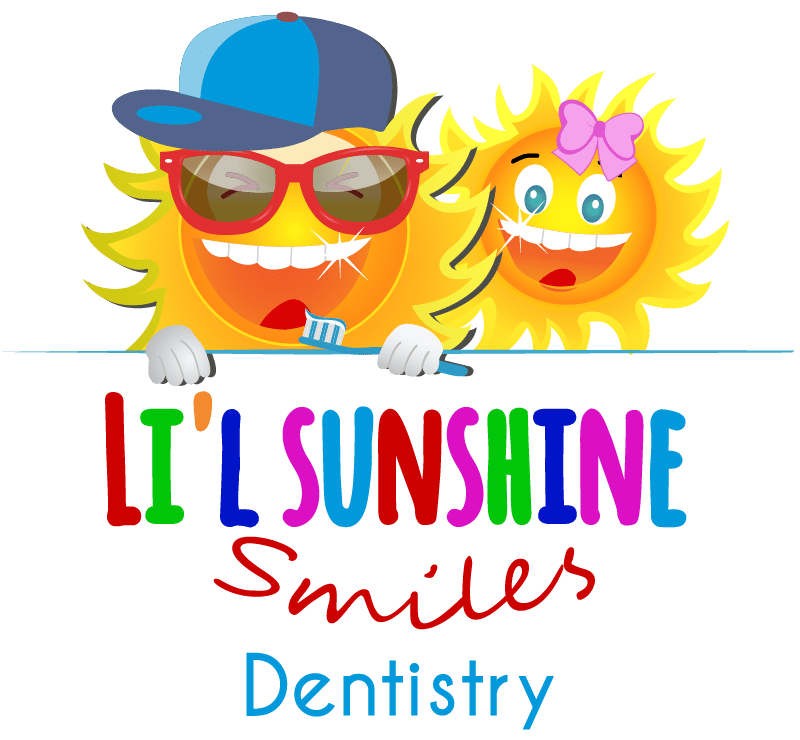According to the Oral Health Foundation, and the American Academy of Pediatric Dentistry, the following are the most frequently asked questions (and their answers) concerning oral health:
What should I use to clean my baby’s teeth?
Seek out a soft-bristled infant toothbrush with a small head to be used at least once a day at bedtime.
When should I take my child for her first dental visit?
Schedule your child’s first dental visit before his first birthday or when his first tooth appears.
How do a children’s dentist and a family dentist differ?
Children’s dentists have more experience and training treating infants and children than family dentists. Children’s dentists are often more familiar with procedures unique to the younger demographic (like frenectomies, baby root canals, dental sealants, etc.)
How important are baby teeth?
Primary teeth (also referred to as baby teeth) are more important than most parents realize. Baby teeth aid in both speech and chewing along with acting as space holders for the permanent teeth.
What should I do if my child has a toothache?
If your child has a toothache, first call our office to discuss her symptoms and to schedule a dental exam. If the pain is severe, you can administer children’s Tylenol for pain. A cold compress can help with swelling and a warm salt water rinse can help soothe sore gums.
Are thumbsucking and pacifier habits bad for a child’s teeth?
Pacifer and thumbsucking habits typically resolve with time and won’t cause any serious issues if these habits cease before the age of three. Beyond this, you may consider discussing with your dentist the aid of an oral appliance (also called a habit device) to break the habit.
How often does a child need to see a dentist?
The ADA recommends that each child (and adult) be seen for a cleaning and exam every six months to prevent tooth decay and other oral problems that can develop. If your child needs more frequency, Dr. Cat will let you know.
At what age should we start using toothpaste?
As soon as you begin to see tooth buds erupting from the gums you can begin to use a rice-size amount of toothpaste, twice daily, with an age-appropriate sized toothbrush. After the child is three years of age, you can increase the amount of toothpaste to a pea-sized amount as you assist your child with brushing. Remember to instruct them to spit out the toothpaste, not to swallow it.
How do I make my child’s diet teeth-friendly?
Strive for a balanced diet that is low in sugars and starches. Try to give them at least one serving of fruits, vegetables, breads, cereals, dairy products, and meat, fish and eggs each day. Ask your dental provider for other tips they may have during your appointments.
What are dental sealants?
Dental sealants seal out decay by filling in the crevasses on thew chewing surfaces of your teeth. Sealants are applied quickly and painlessly but can protect teeth for years.
How do I know if my child has enough fluoride?
Dr. Cat can assess whether or not your home water supply is fluoridated or not. If it isn’t, Dr. Cat can suggest a fluoride supplement that could benefit your child.
Why are my gums bleeding?
Gums will bleed when they are irritated and inflamed due to plaque build-up. Plaque leads to inflammation called gingivitis and can develop into gum disease if not treated.Plaque can turn into a hard deposit called tartar or calculus which will require professional scaling by your dentist or hygienist to remove it if you don’t stay up on your daily toothbrushing/flossing.
What should I do if I knockout a tooth?
First, call our office, but if the tooth is clean you can try to put it back in. Hold the tooth by the crown and place it firmly back into the socket. Bite on a clean handkerchief for 15-20 minutes. (Then still, call our office).
If you cannot get the tooth back in, it has more chance of survival if you can keep the tooth in your cheek until you can get to an emergency dentist. If this is not possible, keep the tooth in some milk.
The tooth needs to be replaced within 30 minutes, so seek dental attention promptly.
What do I do with my sensitive teeth?
If you find that your teeth are sensitive, contact our office for an exam so we can try and determine what is causing your sensitivity. There are certain toothpastes that help with sensitive teeth that you can use. Also, avoid acidic foods and drinks and wait at least an hour after eating before brushing as this could cause even more sensitivity.
Grinding your teeth can also increase sensitivity and a mouth guard maybe necessary.
How safe are dental x-rays?
Dental x-rays pose very little risk to your child. Children’s dentists are especially careful to limit the amount of radiation your child is exposed to. A digital X-ray requires less radiation (as much as a 90% reduction in exposure) to capture a high-resolution image than the traditional X-rays used a few decades ago. Dental x-rays are extremely safe.
Does my child need a Sonic toothbrush?
While electric toothbrushes do come with some fancy designs and timers, they are no better than a soft-bristled toothbrush you buy at the store. Just make sure that your child is brushing at least two times a day for two minutes in all four quadrants of the mouth (in the front and back of teeth).
How can I help my child from getting tooth decay?
Make and keep regular dental appointments for exams and cleanings. At home, brush and floss daily and strive for a balanced diet. That’s it!
Why does my mouth feel dry?
Dry mouth can be a symptom of many different conditions or medications (heart, blood pressure medicine or depression tablets). If you are feeling the symptoms of dry mouth, talk to your dentist. Saliva helps to protect your teeth from bacteria by washing your gums and teeth of them. The drier your mouth, the more at risk you are for developing tooth decay. Your dentist can help.
My face is swollen, what should I do?
If you have facial swelling, it may be the sign of an oral infection. Contact a member of our Li’l Sunshine Smiles team as you may need some antibiotics to relieve the symptoms of this infection.
Have a Question to Add to Our Frequently Asked Questions?
If you have a question about your child’s dental health, don’t hesitate to give our office a call at: 813-576-0200 today! We are excited to help you in any way that we can!


